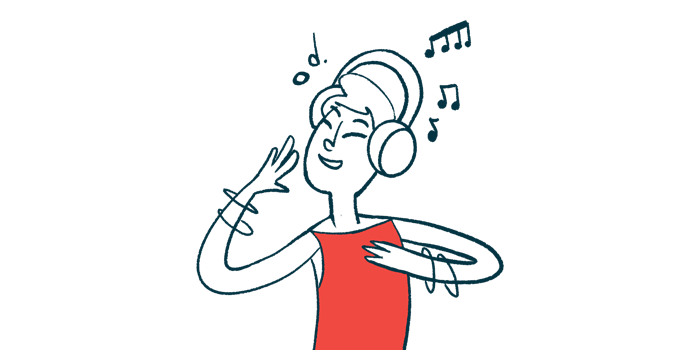Study Will Assess Benefits of Singing
Written by |

Researchers at Iowa State University are evaluating whether four months of group singing sessions can improve breathing and swallowing in people with Parkinson’s disease.
Changes in brain activity and stress markers also will be analyzed.
The study, supported by a three-year grant from the National Endowment for the Arts, is being led by Elizabeth Stegemoller, PhD, a music therapist and an associated professor of kinesiology — the study of human body movement — at the university, where she runs singing classes for Parkinson’s patients.
“When we sing … it’s like we’re doing little mini exercises for the same muscles you use to swallow, breathe and cough to make them stronger and work together,” Stegemoller, who has spent her career exploring the connections between music and health, said in a university press release.
“This new study really pulls together a lot of previous research we’ve already done but for a longer period of time,” she added.
“This will help us understand the physical benefits from singing, like stronger swallowing muscles, as well as the social benefits of group singing that could have a big impact on brain activity and how the body responds to stress,” Stegemoller said.
The researchers hope the study’s findings, should they be positive, may help develop low-cost therapeutic approaches that could target a number of Parkinson’s symptoms, while improving patients’ mental health and quality of life.
While Parkinson’s is known mostly for its hallmark movement-related symptoms, nearly 90% of patients also develop difficulties in breathing, swallowing, and speaking, due to weakness in the muscles that control such functions.
These impairments affect not only the quality of life, but also can increase the risk of aspiration pneumonia, a lung infection that develops due to food or liquid getting into the airway. Aspiration is the leading cause of death in this patient population.
Despite the profound impact of breathing, swallowing, and speech difficulties, most Parkinson’s therapies still fall short in addressing these issues. While they may help improve patients’ movement, they also often are expensive and associated with side effects.
“One drug may affect how someone moves, but then that person may need to take another drug for depression and another drug for constipation,” Stegemoller said.
“Music may not be able to treat constipation, but developing an optimal music therapy could address how people with Parkinson’s disease move, their stress level, their bonding and social experiences, depression and anxiety,” she said.
In a nutshell, “using music instead of a drug, you can treat more symptoms of Parkinson’s disease,” Stegemoller said in an explanatory video.
Stegemoller’s beliefs are supported by increasing evidence highlighting the therapeutic potential of singing in Parkinson’s, including research of her own.
In two previous groundbreaking studies, Stegemoller and her team showed that two months of group singing sessions, once or twice a week, significantly improved breathing and voice control, as well as swallowing-related muscle activity, in adults with early-stage Parkinson’s.
The researchers also found that this approach significantly reduced motor symptoms, including tremor and walking, and improved voice-related and whole health-related quality of life. In a follow-up study, patients reported feeling less stress and a greater sense of camaraderie with other people in the group.
Assessment details
In the present study, the researchers will assess the effects of four months of group singing sessions on patients’ breathing and swallowing skills, brain activity, and in the levels of inflammatory, bonding, and stress markers.
Participants will have their strength of breath measured, as well as their muscle electrical activity during swallowing. Connectivity between the brain and the muscles involved in swallowing will be measured by applying a harmless electric signal in the brain region that controls such muscles and collecting the muscles’ response.
Blood samples will be collected to measure the levels of a protein linked to inflammation, while saliva samples will be used to measure oxytocin, a hormone involved in bonding with other people, and cortisol, the main stress hormone.
Stegemoller noted that prolonged stress weakens the body’s ability to fight infections and increases inflammation, which can damage and kill brain cells.
To date, the team has collected participants’ data at study start, and the same tests will be conducted after the four-month intervention.
These assessments also will be conducted in a group of older adults who do not have Parkinson’s and do not participate in the group singing sessions to serve as a comparison.
In addition, the researchers will ask all participants about recent life events that could increase stress, previous singing and music experiences, and in the case of patients, how long they have been living with the disease. This is meant to help control for the many factors that potentially could affect the study’s results.
While music and other forms of art are gaining recognition for their potential to improve health outcomes, understanding the underlying mechanisms of these benefits may allow more funding for art-based therapies and reimbursements with insurance, the team noted.
“We know music is a powerful tool for health and healing,” Stegemoller said, adding that “this research project will get us a little closer to understanding why.”
The researchers also hope this study will help lay the groundwork for designing interventions that will effectively improve the overall health of people with Parkinson’s.



